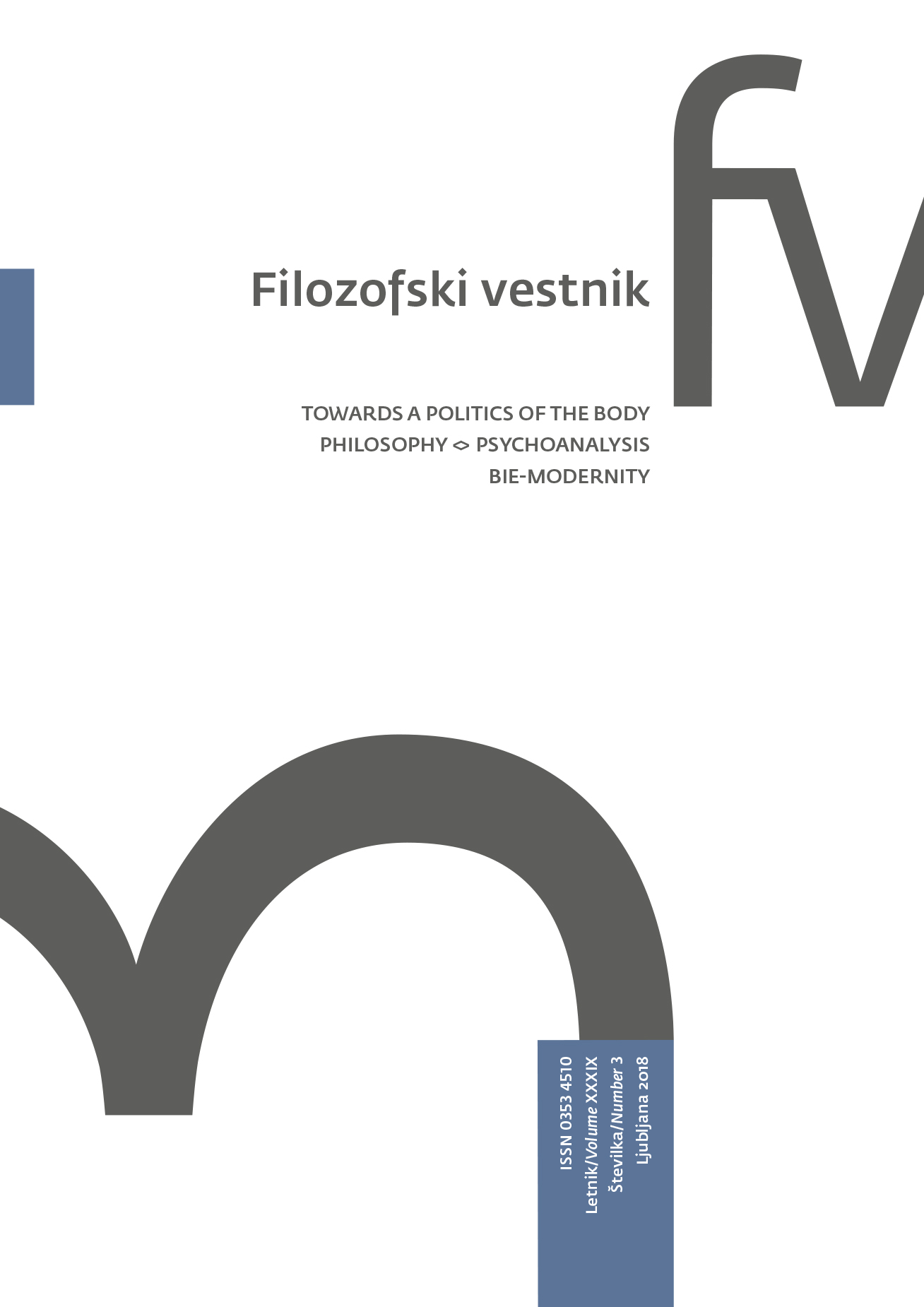Preseči razlikovanje med »govorico in glasom«: ponovno premisliti izgradnjo kitajske filozofije v dobi bie-modernosti (dvomeče modernosti)
Ključne besede:
bie-moderen, dvomeča modernost, kitajska filozofija, diskurz inovativnostiPovzetek
Aristotel v Politiki razlikuje med govorico in glasom. Glas pomeni racionalno, pravično, koristno in razumljivo,medtem ko je glas živali nesmiselno zavijanje, ki pomeni nepravičnost, nekoristnost in nerazumnost. To razlikovanje je močno vplivalo na zahodno filozofijo. Ta esej trdi, da je razlikovanje »govor/glas« nerazumen in samouničevalen diskurz; resnično mednarodna filozofija ali nova knjižna republika bi morala zavreči to razlikovanje in namesto tega zagovarjati eksplozijo nacionalne filozofije, plodna kitajska nacionalna filozofija bi morala poskusiti reševati svoje lastne probleme s pomočjo kritičnega mišljenja ne pa s ponavljanjem teorije in izkustva drugih. V dobi bie-modernosti (dvomeče modernosti) morajo kitajski učenjaki v celoti upoštevati specifičnost sodobne kitajske družbe ter odvreči psevdo-modernost, predlagati različne zhuyi ob tem ko sledi avtentičnost modernosti. Koristen kitajski zhuyi ne bi smel biti omejen na kitajsko perspektivo in bi moral imeti globoko medsebojno delovanje z mednarodnim akademskim svetom, da bi lahko promoviral bolj odprto in bolj svetovljansko filozofijo.
Prenosi
Prenosi
Objavljeno
Kako citirati
Številka
Rubrike
Licenca
Avtorji jamčijo, da je delo njihova avtorska stvaritev, da v njem niso kršene avtorske pravice tretjih oseb ali kake druge pravice. V primeru zahtevkov tretjih oseb se avtorji zavezujejo, da bodo varovali interese založnika ter da bodo povrnili morebitno škodo.
Podrobneje v rubriki: Prispevki





